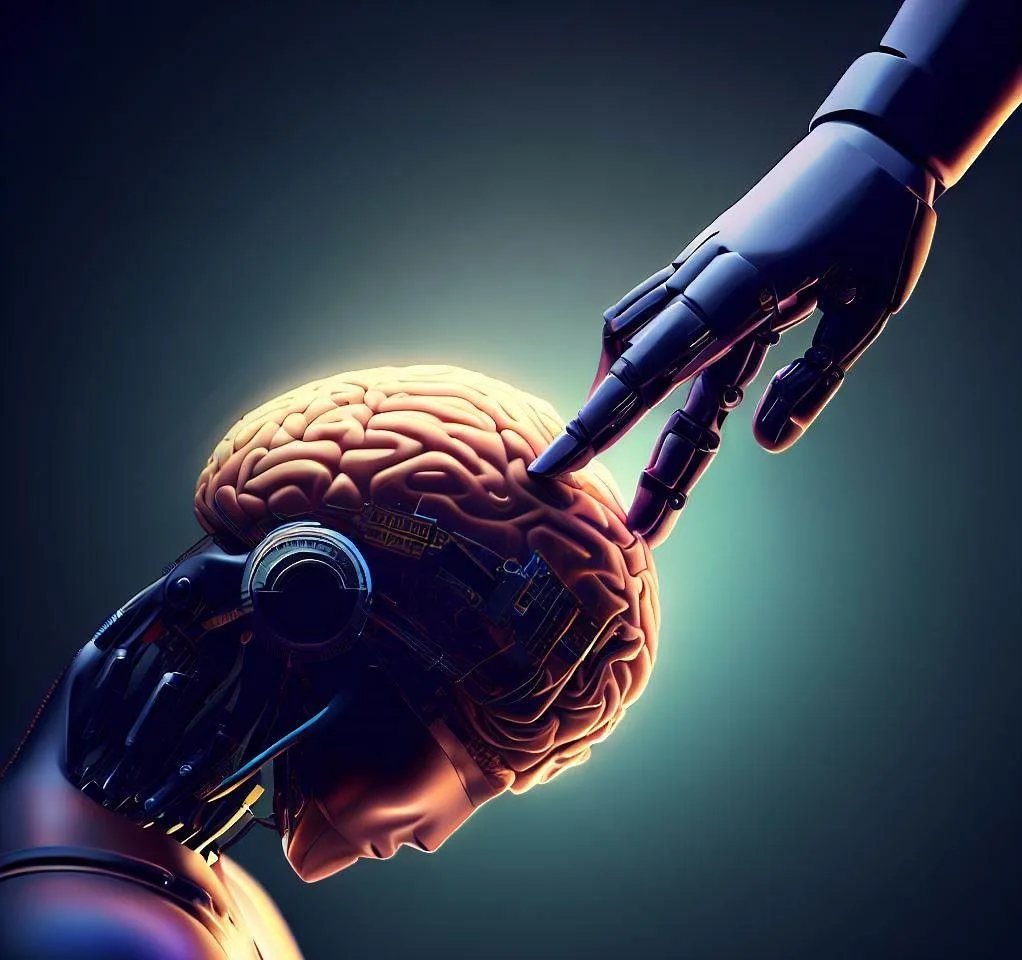The relationship between AI and human psychology is intricate and complex. To navigate this landscape effectively, we must understand its nuances and contradictions.

Understanding the intricate relationship between artificial intelligence (AI) and human psychology is paramount in shaping the future we aspire to achieve. At the forefront of this domain is Dr. Nathanael Fast, an esteemed researcher specializing in technology adoption and the future of work at the USC Marshall School of Business. Dr. Fast emphasizes the significance of comprehending human psychology in our interaction with AI, acknowledging its profound impact on various aspects of our lives. As AI continues to advance at a rapid pace, it is crucial that we navigate the complexities and contradictions that arise, empowering ourselves to make informed decisions about its integration into our society.
Astounding Advancements in AI
Recent advancements in AI have left the world astounded by its capabilities. AI-powered chatbots, such as ChatGPT, have become remarkably human-like in their conversations, blurring the line between artificial and human intelligence. Applications like Lensa generate machine-created portraits that showcase the artistic potential of AI. In a remarkable feat, ChatGPT even passed an MBA exam, demonstrating the capacity of AI to tackle complex academic challenges. Furthermore, AI has been employed by computer scientists to create entire children’s books, complete with captivating text and illustrations.
AI has also made significant inroads into the workplace, automating routine tasks and facilitating information synthesis and summarization. While some employees appreciate the increased efficiency brought about by AI, others express concerns about the potential replacement of human labor. Additionally, questions arise regarding the use of AI for employee surveillance and the perpetuation of human biases through algorithmic decision-making processes. These concerns highlight the ethical considerations that surround the implementation of AI in various industries.
Confronting Human Psychology
Every stride in AI technology confronts our enduring human psychology, evoking multifaceted and often conflicting reactions. On one hand, we enthusiastically embrace devices like Fitbits and smartwatches, reveling in their ability to enhance our lives. However, we recoil at the prospect of insurance companies leveraging the data collected by these devices to set prices or predict health outcomes. Similarly, futuristic technologies that assist individuals with disabilities in regaining sight or mobility receive widespread applause. Yet, when the military employs the same technology to create super soldiers, alarm bells ring. It is essential to recognize that short-term technology adoption and long-term consequences are interconnected, despite our tendency to view them as separate entities.
The Paradoxes of Human Response to AI
Our psychological impulses and cognitive biases render us susceptible to embracing new technologies that, over time, may shape a future we may not desire. Dr. Nathanael Fast’s research on AI and technology adoption sheds light on the contradictions and inconsistencies that manifest in our responses to AI. In a study exploring workplace monitoring, Dr. Fast and his collaborators found that employees were more receptive to tracking when it was carried out autonomously by technology rather than by humans. This response aligns with our inherent fears of judgment and control by other individuals. Tracking devoid of human involvement feels less judgmental, allowing for a sense of autonomy.
However, when examining hiring and promotion decisions, the researchers discovered that employees preferred decisions made by humans, even when the AI-determined outcomes were identical. People viewed algorithms as less fair, and concerned about their potential inability to consider qualitative or contextual information. This preference reflects our innate desire to tell our stories to fellow humans, trusting in their capacity to comprehend nuance and provide impartial assessments. Paradoxically, this inclination may lead us to reject algorithms capable of rectifying human biases.
The Significance of Perception and Response
The importance of our perception and reaction to technology is underscored by these instinctive responses, which hold equal sway as the technology itself. As artificial intelligence continues to grow in power and influence, it becomes increasingly vital to cultivate our own “Technological Intelligence.” To achieve this, we must impartially assess the advantages and drawbacks of technology in our lives, liberating ourselves from cognitive biases and psychological justifications that cloud our judgment. Our inclination to prioritize immediate gratification over long-term benefits, often referred to as “hyperbolic discounting,” frequently guides our decisions when engaging with technology.
For instance, we might prioritize the momentary dopamine surge from browsing social media platforms such as TikTok or Instagram reels, while disregarding the potential long-term repercussions on privacy or emotional well-being. Societal norms and expectations also shape our reactions to technology. This can be observed in the case of food delivery drivers who work for platforms like Uber. These drivers’ delivery routes are determined by computer algorithms, and their performance is assessed based on various metrics set by the platform. This evaluation system plays a crucial role in their contractual agreement with the company.
Nurturing a Future of Informed Decisions
In light of the interplay between AI and human psychology, it is imperative that we nurture a future in which we can make informed decisions about technology. This involves continuously enhancing our understanding of AI’s benefits and drawbacks, and staying cognizant of the biases that may influence our perceptions. By transcending cognitive biases and societal expectations, we can embrace the transformative potential of AI while safeguarding against its unintended consequences.
Ignite your personal growth journey with our handpicked collection of inspiring content. Sign up now for a life-changing dose of motivation and wellness.






